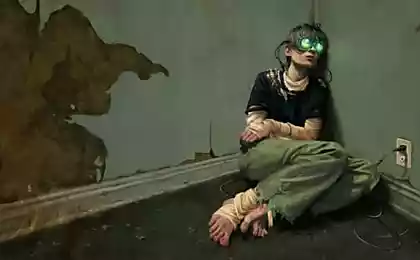337
What not to do when you are in crisis

Every crisis is a crossroad of opportunity that requires a conscious choice of path.
The crisis is not just a difficult period. This is the point of bifurcation when old strategies stop working and new ones have not yet been formed. In such moments, it is especially important to understand not only what to do, but also what should not be done. Mistakes in times of crisis can turn temporary difficulties into chronic problems.
Psychological Traps of the Crisis
Crisis is often perceived as a negative phenomenon, but from the point of view of developmental psychology it is an integral part of personal growth. According to Erik Erikson, every psychosocial crisis presents an opportunity for the development of new competencies. The problem lies not in the crisis itself, but in inadequate coping strategies.
1. Denial of reality
The first and most common mistake is to refuse to acknowledge the problem. According to a study by the American Psychological Association, about 40% of people in crisis go through the stage of denial, lingering on it for an average of 2-3 months. This period of psychological blindness critically increases the depth of the crisis.
The mechanism of denial seems defensive, but in reality it only postpones the inevitable collision with reality, aggravating the situation. When we do not recognize a problem, we deprive ourselves of the opportunity to mobilize resources to solve it.
2. Negative rummination
Rumination – cyclical scrolling in the head of negative thoughts without finding a solution – creates the illusion of analyzing the situation. However, psychological studies show that this pattern of thinking not only does not help, but also significantly worsens the emotional state.
Neuroscientists at Stanford University have found that constant negative rummination activates the amygdala and other stress-related brain structures, leading to cortisol release and cognitive decline. This is why in times of crisis we often cannot think clearly.
Social Mistakes During a Crisis

Social isolation exacerbates crisis by cutting people off from support resources
1. Social exclusion
The paradox of the crisis is that it is when we most need support that we tend to isolate ourselves from others. This is due to several factors:
- Shame and fear of evaluation
- Reluctance to burden others with their problems
- The energy deficit that makes social contact debilitating
- The belief that “no one will understand”
2. Toxic Relationships as ‘Salvation’
An equally dangerous mistake is to plunge into unhealthy relationships in an attempt to avoid loneliness or gain a sense of security. Crisis increases vulnerability to manipulation and reduces critical thinking, making us easy targets for toxic individuals.
Research in interpersonal psychology shows that people in crisis are 60 percent more likely to tolerate emotional or physical abuse in relationships by rationalizing or adapting to their partner’s behavior.
Financial and material errors
1. Impulsive financial decisions
The crisis creates conditions for impulsive decisions, especially in the financial sphere. The psychological mechanism of such decisions is associated with so-called “tunnel thinking” – narrowing the focus of attention, which prevents the assessment of long-term consequences.
Studies by behavioral economists show that under stress people discount the future (depreciate long-term consequences) by 25-40% more than in the usual state. This explains why it is so easy to take a high-interest loan or make an emotional purchase in a crisis.
2. Rejection of long-term planning
The common reaction to a crisis is a complete abandonment of planning for the future, focusing solely on survival. While this approach seems logical, it deprives us of a strategic vision and the ability to use the crisis as a point of growth.
Paradoxically, successfully overcoming a crisis requires a balance between tactical solutions for survival in the here and now and strategic planning to reach the next level. Giving up long-term goals increases the likelihood of getting stuck in a "chronic crisis."
Bodily and physiological errors
Psychosomatic connection works in both directions: not only does psychological stress affect the body, but the state of the body is critical to psychological resilience. Neglecting physical health is one of the biggest mistakes in a crisis.
1. Destructive compensation
Alcohol, overeating, uncontrolled sedation – attempts to numb emotional pain with chemical or behavioral regulators only exacerbate the problem. Temporary relief turns into a deterioration in physical health and a decrease in the resource capacity of the body.
According to epidemiological studies, alcohol consumption during personal crises increases by an average of 30%, and the number of cigarettes smoked by 25%. This phenomenon is known as self-medication and is one of the most destructive mechanisms of coping with a crisis.
2. Chronic sleep deprivation
Sleep disorders - both problems of falling asleep and superficial, intermittent sleep - are characteristic companions of the crisis. However, ignoring this problem or trying to “sustain” can set off a vicious cycle.
372633
Balancing crisis acceptance and action is key to its successful resolution
Research in sleep neuroscience shows that even one night of poor-quality sleep reduces activity in the prefrontal cortex, a brain region responsible for strategic thinking and emotional regulation. After 3-4 nights of sleep disturbance, the ability to make informed decisions is reduced by 40-60%.
Spiritual and existential errors
1. Finding Quick Answers in Pseudo-Spiritual Practices
The crisis inevitably raises existential questions about the meaning of what is happening. In the quest for quick answers, people can turn to simplistic spiritual concepts that promise instant relief from suffering.
According to studies of the psychology of religion, people in crisis are 70% more receptive to spiritual and religious ideas, but at the same time less critical of their content. This creates fertile ground for manipulation by destructive cults and pseudo-spiritual movements.
Genuine spiritual work requires time, awareness, and critical thinking. It does not promise quick fixes, but it does provide a framework for making sense of the crisis experience.
2. Abandoning the search for meaning
The opposite extreme is the complete rejection of the existential dimension of the crisis, reducing it to practical problems. Victor Frankl, who survived the concentration camp and created logotherapy, emphasized that the ability to find meaning in suffering is a key factor in survival in extreme conditions.
Research on post-traumatic growth shows that people who integrate and make sense of their experiences in their life history show higher rates of psychological well-being in the long run.
Cognitive Errors in Crisis
1. The “catastrophe” of the future
The tendency to present worst-case scenarios with no real basis is a common cognitive bias in times of crisis. Neurobiological studies show that in a state of anxiety, the activity of the amygdala (the amygdala) increases, leading to an exaggerated risk assessment.
According to cognitive psychologists, in a state of crisis, people overestimate the likelihood of negative outcomes by an average of 35-40%. This phenomenon, known as “negative prognostic bias,” significantly reduces adaptive planning ability.
2. Generalization of failure
Another common mistake is spreading the experience of failure in one area for life. “I lost my job, so I’m a total loser,” “My relationship broke down, so I’ll never be happy” are typical examples of such thinking.
Generalization creates a sense of total collapse, when in reality the crisis can affect only certain aspects of life. This cognitive distortion not only increases emotional distress, but also blocks the ability to see available resources and opportunities.
Integral approach to crisis management
The crisis is not just a test of life, but a point of transformation that contains the potential for growth. Understanding what NOT to do in a crisis situation helps avoid the pitfalls that can turn a temporary condition into a chronic problem.
Instead of denying reality, conscious acceptance. Instead of social isolation, selective appeal to supportive connections. Instead of impulsive decisions, it is a balanced approach combining tactical survival and strategic planning.
Research on psychological resilience shows that successfully living a crisis does not exclude suffering, but it does integrate that experience into a source of inner strength and wisdom. Perhaps this is the true meaning of the crisis – not just to return to the previous state, but to reach a qualitatively new level of life.
Glossary
bifurcation
The point of branching of the ways of development of the system, the moment of qualitative transition, when even minor influences can determine the further fate of the system.
Resilience
Psychological resilience, the ability of a person or system to successfully adapt and recover from stress or crisis.
Rumination
Obsessive cyclical scrolling in the head of negative thoughts or experiences without finding a constructive solution.
Catastrophe
Cognitive distortion, in which a person exaggerates the negative consequences of events, presenting the worst-case scenarios.
Tunnel thinking
The narrowing of perception under the influence of severe stress, when the person focuses only on a few aspects of the situation, ignoring the rest of the field of possibilities.
Post-traumatic growth
Positive psychological changes resulting from traumatic or crisis events.
Discounting the future
The psychological tendency to place less importance on long-term consequences than on immediate outcomes.
Logotherapy
A psychotherapeutic method developed by Viktor Frankl, based on the belief that the desire to find and realize meaning is the main motivating force of a person.
11 Signs You Have Too Many Things and It’s Time to Take Them Down
How to stop feeling like a bad person if you upset someone























